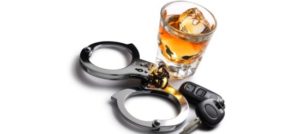Assault and Battery is one of several violent crimes against the person in Virginia criminal law. These offenses include a range of offenses depending on the severity of the incident, the degree of injury inflicted, and the intent of the person committing the offense. At common law (the old laws of England that we inherited in Virginia) a battery is the actual touching or striking someone, and an assault was the action of making someone believe they were about to be battered. Today in Virginia the Code uses the common law definitions of assault and battery, but in practice only battery is usually charged. At the other end of the spectrum is aggravated malicious wounding, which requires actual injury done with malice and intent to maim or kill. Information about many of the different types of assault charges are included here:
- Assault and Battery – Va. Code 18.2-57 – is a class 1 misdemeanor, up to 12 months in jail and up to $2,500 fine;
- Includes any touching, even slight touching, that is done in an angry, insolent or rude manner;
- Domestic Assault and Battery – Virginia Code 18.2-57.2 – is a class 1 misdemeanor (up to 12 months in jail and up to $2,500 fine) and a third offense within 20 years is a class 6 felony (1 day to 5 years in prison, fine up to $2,500);
- Includes any touching done in an angry, insolent or rude manner;
- Requires that the accused and victim are family or household members;
- First Offender Provision – Va. Code 18.2-57.3 – allows for dismissal for a first offense if the defendant completes a time period of good behavior monitored by probation and completes counseling;
- Assault by Mob There are three different versions of this offense
- Assault and Battery by Mob – Va. Code 18.2-42 – Class 1 Misdemeanor (up to 12 months in jail and up to $2,500 fine);
- Provides that every person who is part of a mob, where that mob commits assault or battery, is guilty of a class 1 misdemeanor;
- Acts of Violence by Mob – Va. Code 18.2-42.1 – Provides that every person who is a member of a mob is guilty of any violent offenses committed by the mob and punished as if they have committed the offense themselves;
- Shooting, Stabbing, etc., with intent to maim, kill, etc., by mob – Va. Code 18.2-41;
- Provides that any person who is part of a mob where the mob maliciously shoots, stabs, cuts or wounds a person, or causes bodily injury with intent to maim, disable, disfigure or kill, is guilty of aClass 3 Felony (5 years to 20 years, up $100,000 fine);
- Assault and Battery by Mob – Va. Code 18.2-42 – Class 1 Misdemeanor (up to 12 months in jail and up to $2,500 fine);
- Assault on Law Enforcement – Va. Code 18.2-57(C) – If any person commits an assault and battery against a law enforcement officer;
- Class 6 Felony (1 day to 5 years in prison, up to $2,500 fine);
- Mandatory minimum sentence of 6 months in jail;
- Unlawful Wounding– Va. Code 18.2-51 – If any person unlawfully shoot, stab, cut, wound or cause bodily injury, with the intent to maim, disfigure, disable or kill, it is a Class 6 Felony (1 day to 5 years, up to $2,500 fine);
- Malicious Wounding – Va. Code 18.2-51 – Provides that any malicious shooting, stabbing, cutting, wounding or causing bodily injury, with the intent to maim, disfigure, or kill, is a Class 3 Felony (5 years to 20 years, up to $2,500 fine);
- Aggravated Malicious Wounding – Va. Code 18.2-51.2 – Class 2 Felony (20 years to Life and fine up to $100,000);
- For any malicious wounding where the victim is severely injured and suffers permanent and significant physical impairment;
- Malicious Wounding of Law Enforcement – Va. Code 18.2-51.1 – Provides that any person who commits a malicious wounding against a law enforcement officer, is guilty of an unclassified Felony which carries a range of punishment of 5 years to 30 years, and up to $100,000 fine;
- Also includes 2 years mandatory minimum sentence.
